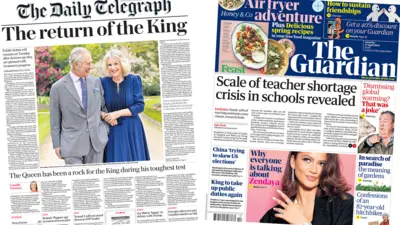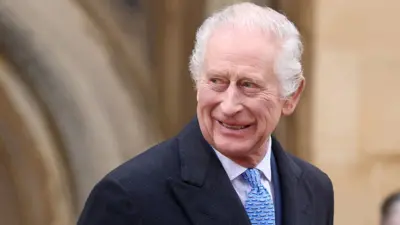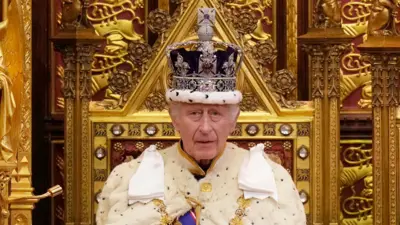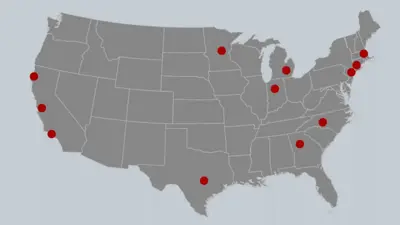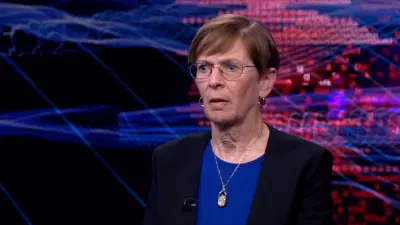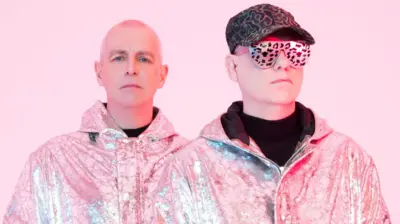We've updated our Privacy and Cookies Policy
We've made some important changes to our Privacy and Cookies Policy and we want you to know what this means for you and your data.
Ukraine war: How two mothers retrieved their dead sons from the battlefield
- By Anastasiya Gribanova, Rhodri Davies, Ivan Yermakov & Claire Press
- BBC World Service
This article contains details that some readers may find distressing.
Lyudmyla Kupriychuk stood crying in a muddy field. Her ex-husband was wrapping their son's body in a blanket.
"I was hysterical," she explains. "I said: 'Are we just going to drive him home in the boot of the car?'"
"My ex-husband yelled at me: 'Calm down, we just need to get out of here'."
The divorced couple had bought an old Mercedes and travelled hundreds of kilometres. They were behind enemy lines to retrieve the body of their dead Ukrainian soldier son and now they were ploughing through fields in Russian-occupied territory pockmarked with shell craters.
After bringing the car to a halt, Anatoliy, Lyudmyla's ex-husband, walked over to some burnt-out armoured vehicles.
Bodies lay scattered on the ground.
"He tore off the uniform to see if there was a tattoo on the arm," Ms Kupriychuk said. "And it was there. It said: 'Never give up'."
"That was all we could recognise our son by," the 40-year-old says, her voice trembling.
"The bodies were lying out in the open for days, in the middle of nowhere. They weren't just burnt, wild animals had gnawed at them too."
Her son Maksym was just 20 years old. He died on the second day of the Russian invasion - 25 February 2022.
Dangerous journey
Nobody had paid much attention to a middle-aged couple arriving in the Russian-held village of Tomaryne. It's about a 90-minute drive from the southern city of Kherson.
The Russians and their allies were yet to establish their administration, so it was chaotic when the couple arrived there in March 2022.
They drove outside the village and met the first manned checkpoint.
"I got out of the car and walked towards a man pointing a gun at me," Ms Kupriychuk recalls. "But I wasn't scared, all I felt was revulsion for these people."
Unbelievably, she says, she managed to cajole the soldiers to let them through. She showed them a photograph of her son's body and they drove to the field where Maksym died.
Then, with his body in the boot, the couple started their 12-hour journey home to Vinnytsia, in central Ukraine.
There is no official data on the number of Ukrainian military deaths or missing bodies - that is classified information.
As a professional soldier based in Lviv in western Ukraine, Maksym had not told his mother that his air assault force had been sent south to stop the Russian offensive. She was shocked when his girlfriend phoned and announced his death.
One of Maksym's colleagues had a photo of the field where he had been killed and said his body was still there. He told her that Maksym had come under shelling, but there was no other information about the circumstances of his death.
Ms Kupriychuk phoned Maksym's military unit, and they told her to wait for information.
"Every night I was going berserk knowing that my son was lying out there in the freezing cold and there was nothing to cover him," she says.
Days later as dawn broke, Maksym's parents set off to find him and bring his body home.
They had no plan - just the photo, the village name and a contact for a local who had volunteered to guide them.
Desperate measures
Ukraine's Presidential Envoy for Servicemen's Rights, Alyona Verbytska, says 15,000 Ukrainians civilians and military personnel went missing between February and the end of 2022. They could have been killed or captured.
On the Russian side, up to 600 soldiers are missing in Ukrainian territory, excluding occupied areas, according to data from the BBC's Russian service.
People are using any means they can to find their loved ones.
A famous TV anchor started a countrywide project to help with the search, and Ukrainians have also donated money for equipment such as refrigerated vans to evacuate the bodies of soldiers and return them to their families.
In social media groups on Facebook and Telegram, people share information about the missing and ask for help.
Natalya Karpova, also from Vinnytsia, was searching for her son, Roman. She found a photo of his body on a Russian Telegram channel in April.
Russian military personnel post on these instant messaging channels, and they are often the only source of information from occupied areas.
The post suggested that a sniper had killed the 30-year-old engineer.
Friends of Roman called to tell her of his death, saying he'd died at the end of April. That prompted her online search. When she found the photo, she called his air force unit.
"They said it was fake and I shouldn't be relying on the aggressor's media for information," she says.
"They said: 'We don't have any document [saying] that your son has died'."
Shrouded in secrecy
Ukraine's military does not comment on missing soldiers as per martial law, which means families often have to wait for the government or volunteers to help return a body.
Ms Karpova, a 59-year-old doctor, quit her job to focus on finding Roman's body herself.
She knew he had gone to the frontline, but not which one.
The picture posted on Telegram showed his ID and gave an approximate location in eastern Ukraine.
With help from another part of the military, a drone was flown over the site, and they located his body near the village of Dovhenke, outside Izyum city in eastern Ukraine.
But heavy fighting and the Russian occupation kept it off limits.
Eventually, there was a breakthrough. Ukraine liberated the village in September 2022.
"It was autumn, I knew we had no time to waste," she says. "When winter comes and snow falls, there would be nothing left of the body."
She quickly assembled a search team with help from local politicians and activists, as well as the military.
Under thick vegetation, and in an area full of landmines, they found Roman's body, using his military dog tag to identify him.
"I felt a load fall off my shoulders," his mother says, her voice breaking. "You cannot imagine what it feels like to be unable to take your son's body home and bury him."
His body was buried back in his home city of Vinnytsia.
The air force told the BBC that heavy fighting and Russia's occupation meant Roman's unit was unaware of all the deaths at the time.
Lost in mourning
On returning to Vinnytsia, Ms Kupriychuk took Maksym's body straight to the morgue.
"All they let me see was my son's hand," she says. "They didn't let me see his body as his head was gone."
She has turned Maksym's bedroom into a shrine. It's full of photos of him smiling as well as a bottle of his cologne and some handcrafts he made for her as a schoolboy. She takes his uniform from the wardrobe and pulls it close to her, as if hugging him.
"Nothing has changed here since he died," she says.
For Ms Karpova, the fact she found and buried her son has brought no peace.
"My husband and I can't believe he's dead," she says.
Ms Karpova adds that she got no support from the air force to find him, though a general later thanked her for finding Roman's body.
"I want victory now so no other mother finds herself in my situation," she says.
The BBC was unable to reach Maksym's military unit for comment on the circumstances of his death.
Top Stories
Features & Analysis
Most read
Content is not available
